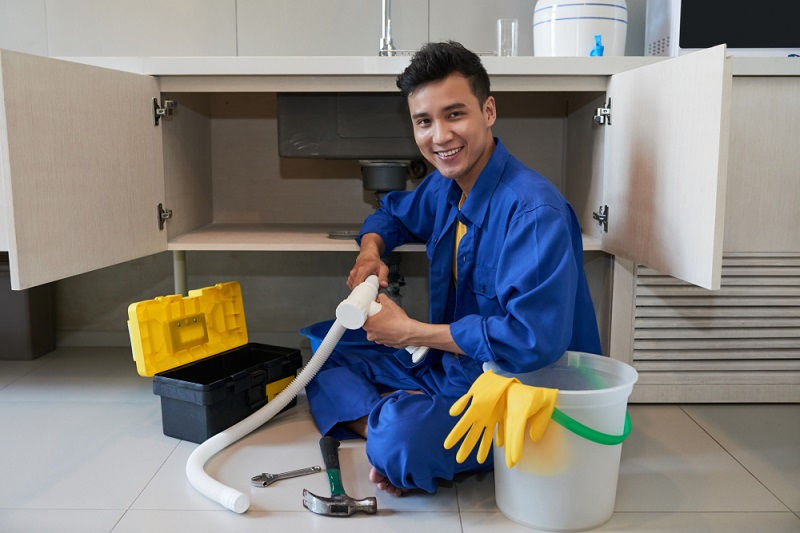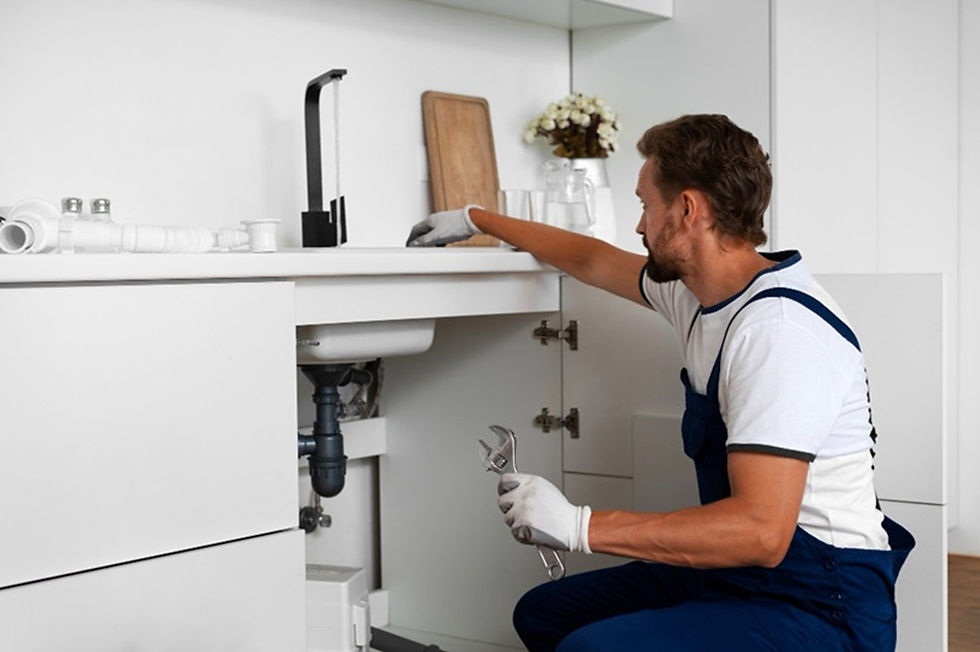Emergency Plumbers in Australia: What You Need to Know Before You Call
- David Fenton
- Aug 12
- 4 min read
Ever found yourself ankle-deep in water at 2am, frantically searching for a plumber? What about that heart-stopping moment when your toilet starts overflowing during a dinner party? Or perhaps you've wondered whether that dripping tap needs immediate attention, or if it can wait until Monday?
Plumbing emergencies have a knack for happening at the worst possible times. Whether it's a burst pipe flooding your kitchen or a blocked drain backing up into your bathroom, these situations demand quick action and reliable help. The good news? Understanding when to contact an emergency plumber and what to expect can save you time, money, and a whole lot of stress.
When to Call an Emergency Plumber?
Not every plumbing issue requires an emergency callout. Knowing the difference between urgent problems and those that can wait saves you money and helps emergency plumbers prioritise genuine crises. So, when should you pick up the phone immediately?

Here's when to call an emergency plumber without hesitation:
No water supply to your entire property
Burst pipes or major water leaks
Blocked toilets (especially if you only have one)
Gas leaks or smell of gas near hot water systems
Sewage backing up into your home
Flooding from failed appliances or fixtures
Complete drainage failure affecting multiple fixtures
How to Find the Right 24/7 Emergency Plumber?
Don’t wait for disaster – Plan to avoid rushed, poor decisions during emergencies.
Check online reviews and ratings
Look for consistent feedback on reliability, punctuality, and pricing.
Ask for personal recommendations
Neighbours, friends, and family often know trusted local plumbers.
Community Facebook groups are great sources for real-time referrals.
Call and ask key questions
What are their emergency call-out fees?
How quickly can they respond?
Do they offer free assessments (rare but possible)?
Watch out for red flags
Vague or inconsistent pricing
Lack of business details (no ABN, website, or ID)
Pressure to book immediately without clear information
Always verify credentials
Confirm they are licensed and insured
Request a written quote and a detailed invoice
Ensure they show ID and proof of qualifications upon arrival
What to Do Before the Plumber Arrives?
Those minutes between calling for help and the plumber's arrival feel like hours. Using this time wisely minimises damage and makes the plumber's job easier. First priority? Stop the water flow if possible.
Locate your main water shut-off valve – usually found near your water meter. Turn it clockwise to stop the water supply to your entire property. For localised issues, look for isolation valves under sinks or behind toilets. Next, switch off electricity to affected areas if water's near power points or electrical appliances. Safety comes first.
Quick actions to take:
Document damage with photos for insurance claims
Move furniture and valuables away from water
Use towels and buckets to contain leaks
Open windows and doors for ventilation
Clear access paths for the plumber
Gather any relevant warranty documents or previous plumbing reports
Emergency Plumbing Costs Breakdown:
Understanding emergency plumbing cost structures helps you budget for unexpected repairs. Beyond the initial emergency plumber call-out fee, you'll face hourly labour charges ranging from $100 to $250. Most plumbers charge in 15 or 30-minute increments after the first hour.
Parts and materials add to your bill. Emergencies often require immediate fixes with whatever's available, potentially costing more than planned repairs. A burst pipe repair might run $200-$500, whilst clearing major blockages costs $250-$700, depending on complexity. Water damage restoration isn't included in plumbing costs, but could add thousands to your overall expense.
What Services Are Included?
Emergency plumbing services cover more than just fixing leaks. Most 24-hour plumbers handle a comprehensive range of urgent issues. Burst pipe repairs and leak detection form the backbone of emergency work, but the service scope extends much further.
Standard emergency services include drain clearing, toilet repairs, hot water system failures, and gas leak detection. Many plumbers also offer temporary solutions to prevent further damage until permanent repairs can be scheduled. This might involve capping pipes, installing temporary bypasses, or providing alternative water supplies.
Special Situations to Consider:
Certain circumstances require extra consideration when dealing with plumbing emergencies. Rental properties create unique challenges – tenants must notify property managers immediately, but urgent repairs affecting health and safety can't wait for landlord approval. Document everything and keep receipts.
Strata properties have specific protocols. Building managers often maintain preferred emergency plumber lists and may cover costs for common area issues. However, internal apartment problems remain the owner's responsibility. Insurance claims add another layer – most policies require immediate action to minimise damage, but some insurers specify approved emergency home services providers.
Special considerations include:
Heritage buildings may need specialist plumbers
Solar hot water systems require qualified technicians
Gas-related emergencies must involve licensed gas fitters
Commercial properties face different regulations and costs
Rural properties might wait longer and pay travel surcharges

How to Prepare for Future Plumbing Emergencies?
Prevention beats panic every time. Creating an emergency plumbing plan saves precious time when disasters strike. Start by researching reputable 24 7 plumber services now, whilst you're calm and can compare options properly.
Build a plumbing emergency kit. Include a plumber's phone number, location of shut-off valves, basic tools like plungers and pipe tape, towels and buckets, and a torch with working batteries. Teach all household members how to turn off water and electricity supplies. Regular maintenance prevents many emergencies – annual plumbing inspections catch problems early.
Conclusion
Plumbing emergencies test our patience and wallets, but knowing what to expect makes these stressful situations manageable. Remember, genuine emergencies like burst pipes, sewage backups, and major leaks justify those hefty emergency plumber call-out charges. For less urgent issues, waiting until business hours saves significant money.
The key takeaways? Know your plumber's call-out fee before agreeing to service, have a trusted plumber's number saved, and learn where your shut-off valves are located. Understanding when to call an emergency plumber versus scheduling routine maintenance protects both your property and your bank account. Quick action during emergencies minimises damage, but don't let panic lead to poor decisions about which plumber to trust.






Comments